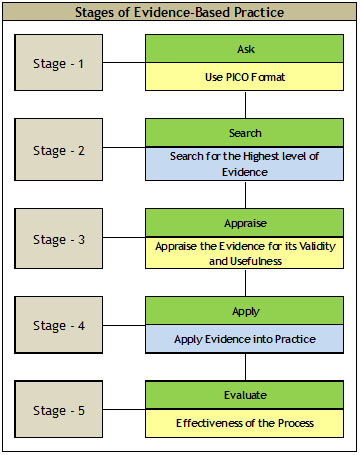Writing a Case Report for Journals is one of the best ways to get started in Medical Writing. Medical Case Study Report describes an unexpected Symptom or Disease. They can explain a medical or therapeutic problem or provide critical information about an adverse reaction to a specific procedure. Case reports can be used for instructional purposes to provide a wealth of clinical knowledge on a valuable lesson learned in practice. Preparing a Case Study is easier than Research Design.

What is Evidence-based Practice?
Evidence-based Practice is combining the Best Research Evidence with Clinical Expertise and Patient Preference.
Evidence-based Practice is based on the following things:
- External Evidence – Systematic Reviews, Randomized Control Trials, Best Practice, Clinical Practice Guidelines that support a Change in Clinical Practice
- Internal Evidence – Healthcare Provider Expertise, Quality improvement Projects Outcomes, Initiatives
- Patient Preferences
- Patient Values
Types of Case Reports
- Diagnostic – Answers Challenging Diagnosis
- Treatment – Discusses management of the Case
- Educational – Use a Case to teach a specific subject
What are the Components of a Case Report?
- Title – Title should be Descriptive
- Abstract – The abstract should be 100 – 250 Words.
- Introduction – Summarise the Content
- Case Report – There should be a concise description of the patient’s medical history, examination, test results, and care. It should contain the following things: history, examination, examination findings, investigations, results of investigations, treatment intervention used, the outcome of treatment
- Discussion – There should be a concise description of the patient’s medical history, examination, test results, and care.
- It should answer the following questions
- Why did you choose this patient for your case study?
- What is known about related cases in the literature?
- How uncommon is this ailment?
- What is the scientific basis for this ailment?
- What is the source of this ailment?
- Why did you decide to intervene?
- What impact did your activities have on the patient’s outcome?
- What are the most popular treatment options for this condition?
- What are your recommendations?
- Conclusion – Summarise the Findings
- Reference – Should be written as per the Journal’s Requirement
- Acknowledgments
Steps in EBP
- Ask – Working out what you want by formulating a Clinical Question in PICO Format. PICO Format is used to extract the Information from a Clinical Situation to focus on a Particular Question.
- P – Patient, Population, Problem
- I – Intervention Planned
- C – Comparative Intervention
- O – Outcome
- Search – Identify the Key Components by converting Clinical Questions into a Search Strategy. Search for the Highest level of Evidence for the Clinical Question.
- Appraise – Appraise the Evidence for its Validity and Usefulness
- Apply – Apply Evidence into Practice
- Evaluate – Evaluate the effectiveness of the Process
Conclusion
Case Reports are crucial in the world of science. When evaluating the importance of case reports, there are a few things to keep in mind. Conclusions drawn from Case Reports can usually be re-established. Case reports also serve as a solid basis for future medical education by allowing for comparison and documentation of novel medical aspects.



